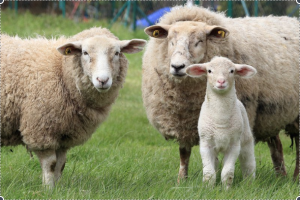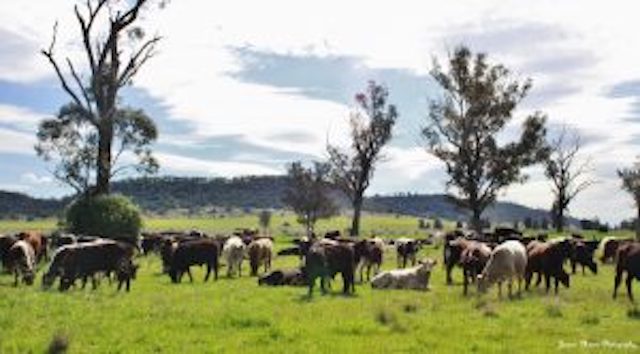Owning or operating a farming business involves a lot of planning and considerations into how to maintain profitability. Whether you are new to farming or have been farming for many years, it’s important to break down the cost of production on your farm; to ensure you are operating at the most efficient and effective level. (A growing trend toward alternate methods shouldn’t be dismissed, as they can be more effective than conventional treatments.)
What factors do you need to take into account?
When working in a livestock system your cost of production is influenced not only by the animals, but also by the pastures or paddocks they live in. Things such as parasites (worms, ticks and lice), bacteria and diseases all contribute to the cost of production faced by your farm. It is important to manage these factors in a way that will reduce the impact on the livestock and therefore your cost of production. According to the MLA parasites are the most costly expense in a livestock production.
In a conventional farming system the majority of your production costs include chemical wormers/drenches, vaccinations, fertilisers, etc. which are used periodically. Even if you follow the guidelines recommended by these chemical companies, do you know if they are working? You can run a worm test a couple of days after drenching and this will give you a indication of its success. Recommendations by chemical wormer/drench companies suggest conducting a drench trial to count faecal eggs every 2-3 years, however this is a long time to wait to find out if your worming program is working. Aside from the need for regular treatments there is also the issues for small farmers who struggle to find products at a reasonable cost and size. The growing trend is for chemical companies to produce one size of chemical drum/bottle suited for large scale producers and phase out the smaller sizes typically used by small farmers. This will increase the cost of production if the farmer needs to buy a product larger than necessary or they may go without, and struggle to maintain their farm business and livestock productivity. There are alternate farming methods, and natural treatments which can be adopted by farmers of all scales which are typically more economical.
Inefficiencies of the system
During my time working with sheep and managing livestock properties I found chemical drenches and vaccinations to harm the stock. The process of weighing the stock periodically proved to be beneficial in identifying the issues and results within the system.
Animals are placed under a lot of stress with the conventional farming system. Stressed animals and animals with high chemical loads in their body will always perform or grow at a lower level. Some may even die. Those animals which reproduce generally have offspring with weakened immune systems and a reduced tolerance to stresses, such as worms and diseases. They then become harder to manage and require more inputs to keep them well and productive. The consecutive generations of livestock then accumulate the load and the overall health of the herd will spiral down; this being the consistent for several years now.
How to find out if your production is being affected
The best way to find out if your production costs are helping or hindering your productivity is to keep records and run your own trials on your farm. A great way to identify the impact of the drench is to weigh the stock before drenching and again 2-4 weeks after, this will allow you to compare the physical affects of the drench on your stock. Any drop in health or body weight will drive your costs of production up as you will need to add more supplements, adjust feed, etc. to get the animal back to a healthy weight where they can grow or perform to the best of their ability.
My experience managing multiple properties in Queensland and New South Wales has lead me to find that conventional chemical products will impact negatively on the health and growth of livestock. Myself and other independent farmers attempted a trial in which we used an alternate method of farming, involving homeopathic remedies. The results were astounding, with the generations from the parents in the trial much healthier than those who weren’t treated with homeopathic remedies. I have now adopted these natural farming techniques among others for my stock with the same result of increased health and immunity all for a fraction of the cost of chemical treatments.
Timing of inputs
The timing of inputs ensures your inputs are utilized in the most efficient way possible, for example; worming your stock on the ideal phase of the moon (full moon). This timing is due to the life-cycle of the worms being at their most active within the animal, as opposed to laying dormant within the muscle tissues. (This will allow the wormer to cover more worms and therefore a better success rate will be obtained)
Years ago while managing a large property in Northern New England NSW, we ran trials on the use of selenium supplements. These trails uncovered that time was critical and would change the outcome. At the time it was something like $20/head on feeder steers and helped us to reach joining weights quicker with our heifers, which for the sake of treating at a different time was quite a bit to help.
Natural/Alternate worming
Alternate wormers or homeopathic wormers provide a natural treatment for worms in livestock, without adding toxic chemicals to the animal. You can get good results when you combine a homeopathic wormer with the moon cycle to allow for an extensive cleanse. They are economical, one bottle can treat up to 300 doses and they are safe and easy to use. Buy your alternate Allwormer for Stock remedy here.
Another step that is often overlooked is grazing management. With the use of effective grazing programs, you can help improve the effectiveness of your drench programs and also decreases the number of drenches needed which in the long term; along with helping to improve your pastures is a win-win.
To book in for your stocks first Healing Plan click here. To book in for your farm’s/property’s first Healing Plan click here. For more information about Healing Plans click here.
To see our recommended remedies for your farm, stock and property click here.

